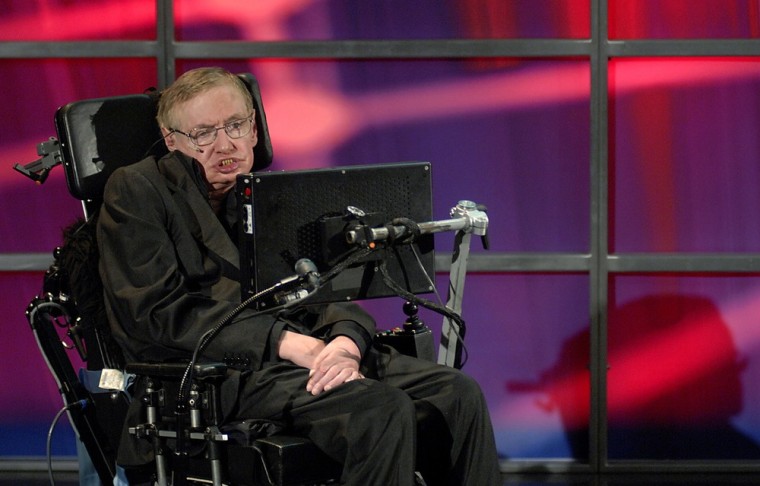Humans must continue exploring space, if only for the romance of it, and time travel should be possible, but engineers will have to figure out a way to warp space-time to be sure, famed physicist Stephen Hawking says.
Hawking spoke out on those subjects and others in a Sunday interview with Parade Magazine to discuss his new book "The Grand Design" with Caltech physicist Leonard Mlodinow.
In the interview, Hawking said he supports the continuation of human space exploration.
Robots may be good at gathering data, he argued, but they shouldn't entirely replace people in space. Seeing astronauts floating around in all that vast blackness is inspiring, and people need inspiration, he added.
"Science is not only a disciple of reason, but, also, one of romance and passion," Hawking told Parade.
On paper, time travel should also be in cards because of Albert Einstein's general theory of relativity, which allows for the potential to warp space-time so much that a traveler could leave Earth in a rocket and return home before he or she ever departed, Hawking said. Of course, that means you have to be able to warp space-time, which is pretty tricky.
"I showed it would require matter with negative energy density, which may not be available," Hawking said.
Hawking also touched on the need for some cosmic perspective, too.
He compared humanity's view of the universe to that of a goldfish looking out of its bowl, saying that we can't be sure our view is the "correct" one. We might be in a giant goldfish bowl, for there is no single, absolute picture of reality, he added.
The Parade interview also touched on other topics such as Hawking's family life, his hopes for science to transform a troubled African continent and his commitment to helping regular people understand basic facts about the cosmos.
"Most people don't have time to master the very mathematical details of theoretical physics," he says. "But I believe everyone can, and should, have a broad picture of how the universe operates and our place in it. This is what I have tried to convey in my books."
But Hawking did not address some of his other views, which have generated a lot of media buzz recently.
In an April episode of his TV series "Into the Universe with Stephen Hawking," the physicist warned humanity not to be so rapturously eager to find extraterrestrial life.
Advanced spacefaring civilizations could be on the prowl for resources, he said on the show. They may be interested only in conquering and strip-mining the Earth, not getting to know us.
And in his new book, Hawking argues that God is not necessary to explain the universe; the law of gravity is enough by itself.
"Because there is a law such as gravity, the universe can and will create itself from nothing," he wrote. "Spontaneous creation is the reason there is something rather than nothing, why the universe exists, why we exist. It is not necessary to invoke God to light the blue touch paper and set the universe going."
Hawking is now almost completely paralyzed by the neurodegenerative disease amyotrophic lateral sclerosis (ALS, also known as Lou Gehrig's disease). He answered the interviewer's questions by twitching one muscle in his right cheek, sending an infrared beam to a computer that translates the twitches into words.
Despite his disability, Hawking said he has lived a full life. He has children and grandchildren, and has traveled the world. He has experienced weightlessness, taking a flight in 2007 aboard a plane whose rollercoaster motion generated zero-gravity conditions for short spells.
In the Parade interview, Hawking said he has no plans to slow down.
"I have traveled the world, from the Antarctic to zero gravity," he said. "Perhaps one day I will go into space."
